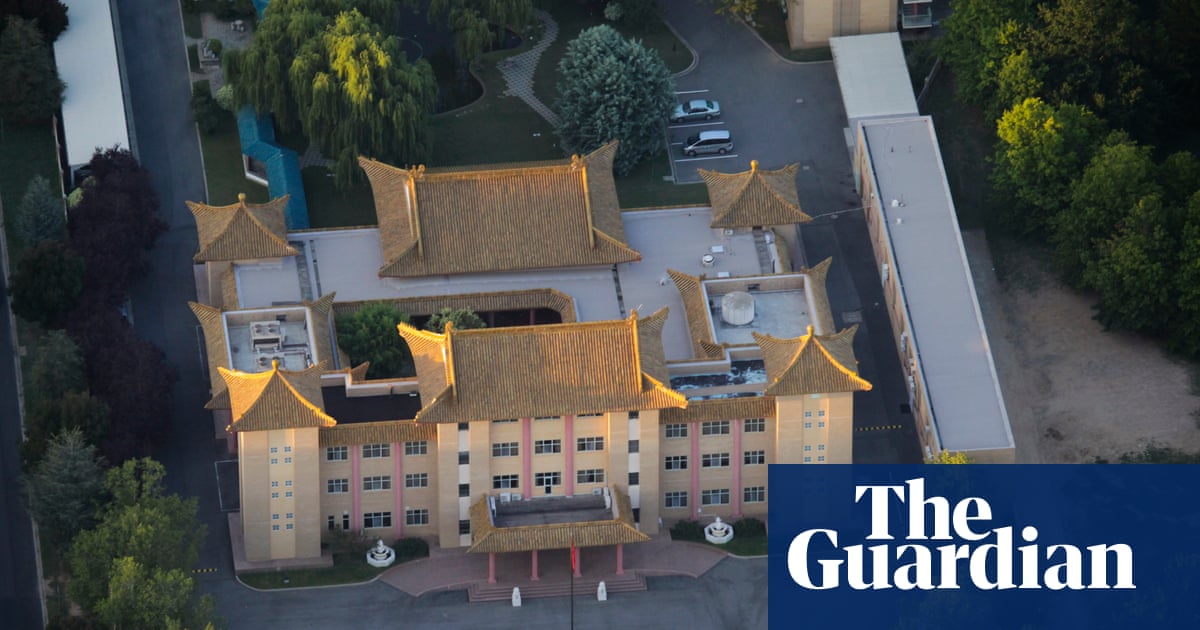
China[1] has ambitions to rival the US as the world’s diplomatic superpower with Beijing’s foreign affairs ministry running more embassies and consulates around the world than Washington’s state department, which still has a quarter of its key positions unfilled.
The 2019 Lowy global diplomatic index maps the size and reach of 61 diplomatic networks around the world by embassies, consulates, permanent missions and other diplomatic posts.
Tracking all G20 and OECD[2] countries, and most Asian nations, it showed an emerging China rivalling and, numerically at least, surpassing the US, caught “in a period of limbo”.
China has 276 posts, three more than the US, and 96 consulates to the US’s 88, a reflection of its emphasis on its economic and diplomatic interests.
A Lowy Institute research fellow, Bonnie Bley, said although Beijing had put a significant diplomatic infrastructure in place, it reflected China’s ambition more than its influence.
“The US remains the global hub for diplomatic activity,” she said. “It is – by a wide margin – the most important place for countries to locate their diplomatic posts ... China … is a distant second.”
China continues to expand its diplomatic footprint – it has added five posts in the past two years – and America’s has shrunk. It closed its St Petersburg consulate after its fallout with Russia. The Trump administration has not announced any new posts.
Only 73% of the US state department’s key positions are filled, the index reported. The former US ambassador to Ukraine, Marie Yovanovitch, told Congress this month[3] a “hollowed-out” department was in “crisis”, saying “the policy process is visibly unravelling”. Australia went without a US ambassador for two years[4].
Bley said staff vacancies nearly three years into Trump’s term were concerning, but that the US’s diplomatic influence, developed over decades, would not be unwound in a single presidential term.
“Instead, president Trump’s abrupt abandonment of multilateral initiatives – the trans Pacific partnership, the Iran nuclear deal, the Paris climate agreement – is a greater threat to enduring US diplomatic influence,” she said.
Significantly, Beijing’s advances have come at Taiwan’s expense. In 2016 Taipei maintained 22 posts but this has dropped to 16. Beijing has opened five embassies – in El Salvador, Burkina Faso, the Gambia, São Tomé and Príncipe, and the Dominican Republic – all countries that formerly recognised Taiwan[5].
Australia’s diplomatic footprint ranks 27th in the world. It is second-last in the G20, ahead of only Saudi Arabia, and 20th of the 36 OECD countries.
“Australia continues to run a diplomatic deficit: at 27th place, it is on par with Belgium, despite having more than twice the population and almost three times the economic size,” the index report said.
“While many countries continue to grow their own networks, Australia is treading water. Maintaining its diplomatic momentum is key to staying afloat.”
Australia has opened two posts – in Tuvalu and Morocco – in the past two years, and has forecast opening five more across the Pacific by 2021, reflecting the government’s promoted “step-up” in the region.
Australia has grown from 91 posts a decade ago to 118 in 2019, but Bley said “while these are steps in the right direction, they ultimately do not go far enough to reverse our diplomatic deficit”. She argued for broader engagement in Africa and South America, as well as more consulates in key economic partners such as India and South Korea.
France ranks third for diplomatic presence, Japan has surpassed Russia – going into fourth spot – and Turkey has leaped into sixth place, expanding its links beyond Nato allies and focusing on Latin America and Africa.
The UK has promised to become “Global Britain” after Brexit, and has forecast plans for three new Pacific posts. However, since 2016 it has closed or downgraded 11 consulates and three offices. It has fallen from ninth to 11th since 2016.
As part of its Brexit strategy, the Republic of Ireland has opened eight posts in the same timeframe.
Bley said measuring diplomatic influence was more complex than a sum total of posts, but “looking at where countries are investing resources and building diplomatic infrastructure can tell us a lot about national priorities”.
References
- ^ China (www.theguardian.com)
- ^ OECD (www.theguardian.com)
- ^ The former US ambassador to Ukraine, Marie Yovanovitch, told Congress this month (www.theguardian.com)
- ^ Australia went without a US ambassador for two years (www.smh.com.au)
- ^ Taiwan (www.theguardian.com)


No comments: